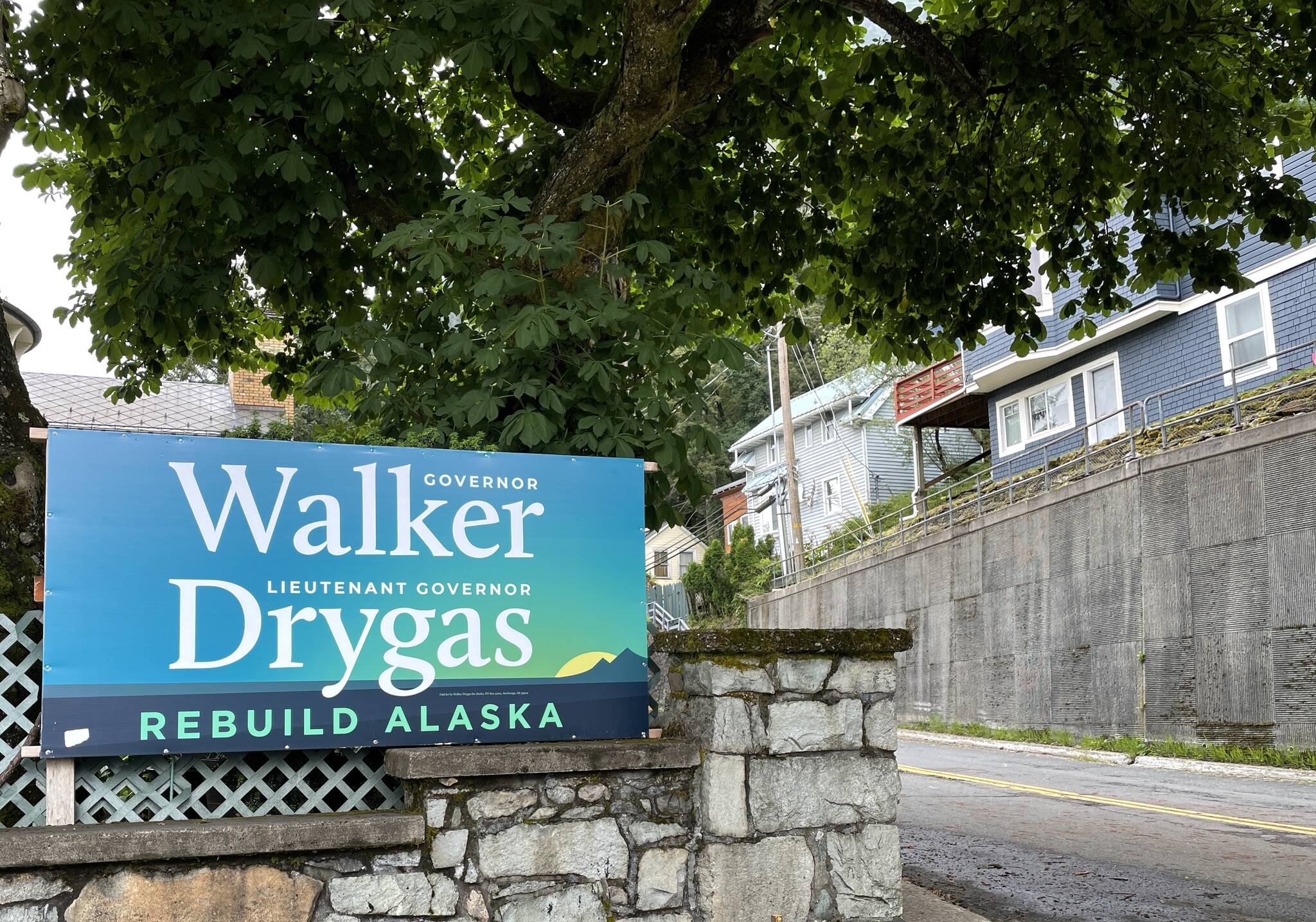More than three times as much money was contributed to the top three candidates for Alaska’s governor as the same period four years ago, according to reports filed by Monday with the Alaska Public Offices Commission. Republican incumbent Mike Dunleavy, Democratic challenger Les Gara and independent candidate Bill Walker finished 1-2-3 for the most recent reporting period ending July 15, according to filings.
A total of about $2.8 million was raised by the three campaigns, compared to about $890,000 by the top three campaigns in 2018, according to state data. The huge increase is occurring after APOC by 3-2 vote in February issued an advisory decision declaring there are no limits on donations by individuals to candidates and groups, based on a Ninth Circuit Court of Appeals ruling last year.
“One of the major reasons (for the increase) is if I want to give a million dollars to a candidate I can,” said Thomas Lucas, APOC’s campaign disclosure coordinator. He said it’s also possible Alaska’s first elections with ranked choice voting is stimulating donor activity and “of course we have an interesting race this time around.”
Reports were also filed by candidates for the Alaska Legislature. Among Juneau’s delegation of incumbent Democrats, Sen. Jesse Kiehl reported $4,601.71 in contributions for the period between Feb. 2 and July 15, and $61,437.05 since his campaign began; Rep. Sara Hannan $2,150 for the period and $5,900 overall; and Rep. Andrea Story $1,468.57 for the period and $12,920.13 overall. Only Hannan currently faces a challenger, with unaffiliated candidate Darrell Harmon showing no campaign finance filings with APOC.
Dunleavy, running for a second term with Nancy Dahlstrom as lieutenant governor, reported $1,031,601.92 in income, the team of Gara/Jessica Cook $939,091.70, and Walker/Heidi Drygas $831,896.22 for the period between Feb. 2 and July 15.
In 2018, Dunleavy reported $535,840.00 in income for the period, then-incumbentWalker $220,558 and Democratic contender Mark Begich $133,373.69.
In terms of the total amounts raised by the campaigns to date Walker tops the current three tickets with about $1.5 million compared to the $498,000 raised four years ago, the only campaign reporting income beyond that for the most recent reporting period. Dunleavy’s total of $1.031 million compares to $670 million in 2018, and Gara’s $939,000 compares to Begich’s roughly $133,000.
Total spending by the campaigns also shows an overall increase, although the figure is skewed because Dunleavy spent about $628,000 as a challenger in 2018 compared to $233,000 this year as he builds up a war chest for the fall’s reelection campaign. Walker spent about $211,000 in 2018 compared to about $749,000 during the current campaign, and Begich about $38,000 then compared to Gara’s $283,000 now.
The three current campaigns are relatively even when it comes to cash-on-hand, with $768,263.21 for Dunleavy, $751,299.78 for Walker and $655,876.68 for Gara, according to filings. Which doesn’t keep campaigns from trying to spin the numbers in their favor, especially for audiences not included to do a deep dive into the dizzying array of APOC accounting.
Walker’s campaign, for instance, chose in a news release to highlight his highest overall fundraising total rather than his third-place finish for the most recent period, and despite being in the middle in terms of cash available proclaimed “these results place Walker-Drygas ahead of all other candidates in fundraising and help establish a clear path to victory.”
The focus on financial figures also overlooks a poll released about two weeks ago showing the Walker campaign in third place among the major contenders with 22.7% of respondents, far behind Dunleavy with 50.9% and beyond the 2.9% margin of error of Gara’s 26.4%.
Dunleavy’s campaign opted to emphasize campaign themes as the incumbent, stating “during this period of record-high inflation and energy costs I appreciate the support of everyone who recognizes that Alaska is at the forefront of issues that matter not just to us, but to all Americans, especially energy independence, national security, and leading the fight against extremist policies coming from Washington, DC.”
Gara’s spin on his second-place fundraising finish for the period and third overall was a series of Twitter messages declaring “we have more individual donations than any candidate (over 4,000)” and “it also looks like we have more support from individual Alaska voters than any other campaign.”
Walker and Dunleavy also emphasized high percentages of Alaska donors in their news releases, with Dunleavy claiming 92% of his 1,826 donations are in-state and Walker stating about 90% of his roughly 2,090 donors are Alaskans.
Other candidates running for governor and lieutenant governor reported much smaller amounts (and have similarly diminutive standings in polls). Republicans Charlie Pierce/Edie Grunwald $64,193.52 in period and $120,353.36 in total donations, and $98,455.65 in total expenses; Republicans Christopher Kirka/Paul Hueper $12,423.79 for the period and $112,691.80 total, and $114,885.84 in expenses; Republicans David Haeg/S. Waynette Coleman $1,890 in period and total donations, and $1,746.94 in expenses; Republicans Bruce Walden/Tayna Lange $2,739 in period and total contributions, and no expenses; and Alaskan Independence Party candidates John Wayne Howe/Shellie Wyatt $834.95 period and total donations, and $370.20 in expenses. The undeclared ticket of William Nemec/Ronnie Ostrem reported no income or expenses.
• Contact reporter Mark Sabbatini at mark.sabbatini@juneauempire.com.

